NEW RELEASE PAPUA NEW GUINEA
New coffee releases from Papua New Guinea, Ethiopia and Mexico
New coffee releases from Papua New Guinea, Ethiopia and Mexico
PAPUA NEW GUINEA | KUNJIN
[PA-PWUH • NOO • GIN-EE • KOON-JIN]
Process: Washed
Region: Wahgi Valley
Elevation: 1,400 - 1,400 masl
Varietal: Arusha, Bourbon, Typica
Brown Sugar, Hot Cocoa, Cranberry
Juicy sweet, medium bodied cup. Hot cocoa & brown sugar sweetness with a cranberry acidity.
Sourced from various smallholder producers in PNG's Western Highlands. Coffees are delivered in cherry form by producers who own an average of 1.5 hectares of land, with about 2,500 coffee trees per hectare maximum.
ETHIOPIA | HAMBELA WAMENA
[EETH-EE-OPE-YA • HAM-BELL-UH • WUH-MEN-UH]
Process: Natural
Region: Hambela, Guji
Elevation: 1,970 - 2,241 masl
Varietal: Heirloom
Blueberry, Maple Syrup, Cinnamon
Rich and syrupy sweet naturally processed Ethiopia. Notes of cinnamon and blueberry.
The Hambela Wamena Washing Station was founded in 2018 by the founder of Tega & Tula farms. Its location at the top of the highest mountain peak of Guji, Hambela, makes it a central point to serve surrounding towns, and it currently serves around 3,900 producers. There are a number of social programs supported by this washing station, including the building of roads, schools, and technical equipment and support for producers as well as medical health expenses and support for women's health care. Coffees in Ethiopia are typically grown on very small plots of land by farmers who also grow other crops. The majority of smallholders will deliver their coffee in cherry to a nearby washing station or central processing unit, where their coffee will be sorted, weighed, and paid for or given a receipt. Coffee is then processed by the washing station and dried on raised beds. The washing stations serve as many as several hundred to sometimes a thousand or more producers, who deliver cherry throughout the harvest season.
MEXICO | CRISTAL
[MEX-A-KOH • KREE-STAHL]
Process: Washed
Region: Veracruz, Oaxaca, Chiapas
Elevation: 1,000 - 1,800 masl
Varietal: Mixed
Process: Washed
Granola, Raisin, Dark Chocolate
Smooth and chocolatey cup with a raisin sweetness. Clean, straight-forward easy to drink coffee that everyone will love.
Cristal represents an amalgam of coffees from across Mexico’s growing regions, including Veracruz, Oaxaca, and Chiapas.
LImited drop: guatemala santa sofia | anaerobic pacamara
Meet Santa Sofia, a stunning coffee from a tiny 4-hectare farm in Mataquescuintla, Guatemala, sitting at 1,500 meters above sea level.
Finca Santa Sofia isn't your typical coffee farm. Since 2005, it's been a variety garden – basically a coffee playground where they experiment with everything from Gesha to Pink Bourbon, constantly pushing boundaries with innovative processing techniques.
The coffee we're featuring is the Pacamara variety, processed using an anaerobic washed method. The cherries ferment in a sealed, oxygen-free environment before washing, creating complex, distinct flavors you simply can't get any other way.
We taste White Chocolate, Stone Fruit and Kiwi.
This cup is absolutely stunning – rich sweetness, beautiful fruit notes, and bright acidity that ties everything together perfectly.
What we love most about Santa Sofia is their commitment to community. They're not just making exceptional coffee – they're building an entire coffee-based economy, creating jobs across the whole value chain.
This is a Highland Collection release, which means once it's gone, it's gone. These small-lot coffees don't stick around long.
P.S. Want to taste it first? Stop by the shop to try it on slow bar before you commit to a bag.
New Arrivals from Colombia and Mexico
Manos Juntas, Neiver Hernan Medina Rojas from Colombia and Cesmach from Mexico.
Manos Juntas, Neiver Hernan Medina Rojas from Colombia and Cesmach from Mexico.
COLOMBIA | MANOS JUNTAS
[KUH-LUM-BEE-YUH • MAH-NOUS • HOON-TAS]
Process: Natural
Elevation: 1,400 - 2,000 masl
Region: Cauca
Varietal: Castillo
Blackberry Jam, Red Wine, Grape Juice
The name of the micromill directly translates to ‘Hands Together’ in a wonderful illustration on the burlap sacks the coffee is stored in at origin.
This natural process Colombia from the Manos Juntas micromill is from producers of surrounding farms in Cauca.
Complex, deep sweetness of blackberry jam and wine. Subtle notes of red wine and grape juice.
Manos Juntas is a micromill in Sotara area of Colombia's Cauca region. The entire concept of this micromill is based on simplifying tasks and responsibilities. This particular offering was first purchased in its cherry form when delivered to the mill on the day of harvest. Upon arrival, the Brix and pH were recorded, and the cherries are placed in large hermetic tanks for a five-day-long anaerobic fermentation: Each tank is labeled with the name of the producer, to retain traceability. During this period, nitrogen gas is introduced into the tanks in order to stimulate the yeast. Brix and pH are measured constantly through this process and are used to determine the stopping point for fermentation; the coffee is then subjected to 68°F temperatures in order to cease fermentation and remove the yeast and other microorganisms. For Honey-processed coffees, the cherries are then depulped and dried with the mucilage on in raised beds under shade. For Naturally-processed coffees, the cherry is then "aged" in tanks for a period of five more days before they are taken to solar dryers. Drying takes 30–45 days. Oncedried, the coffee is cupped and samples are sent. They are then approved, milled, and shipped. Producers get paid upfront for their coffee, typically producers have to wait 35 to 40 days for coffee to dry before selling it. Producers involved are from surrounding farms. This means they need only to travel a short distance to deliver coffee, as opposed to driving many kilometers into town. Coffee infrastructure, like drying beds, fermentation tanks, and depulpers, can be very expensive to purchase and maintain. With this model, farmers can forgo all of this hassle and focus on maintaining healthy trees.
COLOMBIA | NEIVER HERNAN MEDINA ROJAS
[KUH-LUM-BEE-YUH • NEE-VER • EHR-NAN • MUH-DEE-NUH • ROW-HASS]
Process: Washed
Elevation: 2,050
Region: Inzá, Cauca
Varietal: Castillo
Apple Cider, Raisin, Chocolate
Neiver Hernan first came into contact with coffee as a child, but only came to see it’s true significance in his twenties. Years later, inspired by his wife he expanded the farm. He focused on improving agricultural practices and building infrastructure for processing and drying. He lives happily with his wife and children on the farm, enjoying the significance coffee has brought to their family.
An incredible cold weather coffee with notes of spiced apple cider and chocolate.
Neiver Hernan Medina Rojas owns Loma Linda Farm in Cauca, Colombia. He first came into contact with coffee as a child, but only came to understand its true significance when he was in his twenties. At that point, he planted a small plot of traditional Bourbon Amarillo. It was years later, inspired by his wife, that he decided to expand the farm. Around eight years ago, he changed his approach to coffee farming, focusing on applying fertilizers at the right times, improving agricultural practices, and building the necessary infrastructure for processing and drying. This growth as a farmer came from continuous learning, which led him to explore the diverse flavor profiles and characteristics that different practices can produce. Thanks to this new approach, he has optimized the quality of his coffee and improved its agricultural management. Today, his goal is to continue learning and refining his techniques. He lives happily with his wife and children on the farm, enjoying the significance that coffee has brought to their family.
Farm Maintenance
To ensure sustainable, high-quality coffee production, Neiver Hernán Medina carries out various maintenance activities on his farms. One of these is weeding, performed every three months. This practice not only removes vegetation competing for nutrients and sunlight but also facilitates harvesting by allowing pickers to move easily between the rows, improving efficiency and reducing picking times and costs. In addition, before applying fertilizer, the base of the trees is thoroughly cleared (a practice called plateo) to optimize nutrient absorption, an essential practice for healthy growth of the coffee plants. Thanks to the elevation of the farm, at 2,050 meters above sea level, it is not necessary to use frequent insecticides or chemical treatments for pest control, as the cooler temperatures limit insect activity. Neiver also plants complementary crops such as plantains, avocados, and fruit trees like tangerines and lemons. These provide natural shade for the coffee plants, protect them from intense solar radiation, help retain soil moisture, reduce erosion, and enrich the soil with organic matter, while also providing additional income and food for the family.
Harvest
The harvest takes place in two seasons: the main season from October to December, and a smaller one called mitaca, from April to May. During these periods, a team of local pickers collects cherries in 21-day intervals, selecting only fully ripe fruit. After picking, the cherries undergo a flotation process that removes low-density fruit. These are typically underdeveloped, unripe, or affected by pests like the coffee berry borer, making them lighter than the rest. This step ensures that only the densest and highest-quality cherries move on to the next stage of processing. The altitude of the farm influences the ripening process, making it slower and more gradual compared to other regions. This allows the cherries to fully develop their characteristics, achieving higher density and ensuring an exceptional final product.
Processing
After picking, the cherries are placed in tanks or bins for 24 hours to allow fermentation to begin. During this time, microorganisms consume the sugars in the mucilage, which helps in the pulping process and contributes to the development of flavor and aroma. The cherries are then pulped and transferred to plastic tanks for a further 36 hours of dry fermentation. After this, the beans undergo three washing cycles. Drying takes approximately 15 days. The beans are laid out in layers no more than 3 centimeters thick and turned three times a day to ensure even drying. Due to the altitude and humidity of the area, this process can sometimes take slightly longer. To check if the coffee has reached the desired moisture level, a small sample is threshed by hand. If the beans have a uniform, cement-like appearance and a moisture content of 9–11%, the batch is considered ready. The dried coffee is packed in bags and stored on wooden pallets for approximately 15 days to allow stabilization. The storage room is used exclusively for coffee to prevent any risk of contamination.
MEXICO | CESMACH
[MEX-A-KOH • SESS-MATCH]
Toffee, Molasses, Sugar Cookie
Rich and chocolatey with the warmth of sugar cookie and toffee.
Chiapas is the southernmost region of Mexico. The mountains of this region span into bordering Guatemala and much of this tropical forest is the protected Triunfo Biosphere Reserve. This area is humid and tropical, inhabited by small communities of producers who have formed cooperatives to gain stronger representation in the coffee market. These producers take pride in their land, growing coffee organically through methods passed down from generation to generation.
Thanks for reading, now go enjoy some delicious coffee!
Take it easy.
Three New Arrivals From Ethiopia
Three new coffees from Ethiopia have just arrived to our roastery!
Three new coffees from Ethiopia have just arrived to our roastery and we can’t wait for you to try them!
ETHIOPIA | DUWANCHO
[EETH-EE-OPE-YA • DOO-WAHN-CHO]
Tasting Notes: Tropical Fruit, Floral, Watermelon
Process: Honey
Elevation: 1,900 - 2,150 masl
Region: Sidama
Varietal: Heirloom
This vibrant cup has a candy-like sweetness, layered with notes of tropical fruit and watermelon, all wrapped in a gentle, warm florality.
This lot comes to us from the Duwancho washing station in Sidama. The coffee is soaked for two hours here before being placed on raised beds. During drying, the thickness of the cherries is kept as thin as possible to ensure consistency.
The Sidama region is known for producing the most coffee at the highest grades in Ethiopia, and the geography explains why this is. This region spreads across fertile highlands, where half of the land is cultivated. The surrounding rivers and lakes along with the very high elevation results in cool weather and fertile soil. These factors, in combination with over 100 inches of rainfall per year, cause the coffee to ripen slower than in any other region in Ethiopia. There are over 50 cooperatives and 200 washing stations throughout Sidama.
ETHIOPIA BEKELE GEMEDA
[EETH-EE-OPE-YA • BEH-KEH-LEH • GEH-MEH-DAH]
Tasting Notes: Marmalade, Jasmine, White Peach
Process: Washed
Elevation: 1,780 - 2,100 masl
Region: Yirgacheffe
Varietal: Heirloom
From Mr. Bekele Gemeda, a resident of the village Worka. He operates the 6.5 hectare farm with his elder sons.
Smooth and vibrant. This washed process coffee has a rich mouthfeel with notes marmalade, jasmine, and white peach.
This single producer lot comes from Mr. Bekele Gemeda in the Worka village in Yirgacheffe. Mr. Bekele Gemeda is a resident of small village called Worka 13 kms from Gedeb town. He owns 6.5 hectares of coffee farm in one place and another 3 hectares in another place within the same village. He works full time in his farm assisted by his able children who completed their primary education but couldn’t find another job in towns. Mr. Bekele, who is the father of 11 children, fully relied on the income he generated from his coffee farm. The coffee farm business also supports his two elder married sons who also work together with him.
Yirgacheffe has become famous for coffees that tastes like blueberries. This region is plentiful. The thick vegetation is a product of the warm tropical climate with moderate wet and dry seasons. Most coffee is shade-grown by small producers using organic practices. Coffees are cultivated from 1600 to 2400 masl in these highlands. The multitude of microregions creates complex profiles depending on the washing station a particular coffee is from.
ETHIOPIA | TEDESE TEKO
[EETH-EE-OPE-YA • TEY-DEH-SEH • TEY-KO]
Tasting Notes: Mandarin Orange, Mango, Honey
Process: Washed
Elevation: 1,780 - 2,100 masl
Region: Yirgacheffe
Varietal: Heirloom
Vibrant and aromatic with a syrupy mouthfeel. Sweet notes of mandarin orange, mango, and honey make this an unforgettable cup.
This single producer lot comes from Mr. Tadese Teko in the Shale village near Worka town in Yirgacheffe. Mr Tadese Teko is one of millions of farmers who live in the highlands of Ethiopia and relied on coffee to support their livelihoods. He owns 8 hectares of land which is large by the standards of the area where average land size is 4 hectares. Mr Tadese has 9 children and he manages to send his children to school thanks to the income he receives from coffee sales. Farmers in the area usually create natural fertilizer utilizing waste and no chemical fertilizer is applied for coffee grown in such areas. Besides supplying their coffee most small-holder farmers in the area also work in the washing stations as laborers to get extra income during the picking season. Mr Tadese usually produces washed coffees and usually supplied to to nearby washing stations.
Thanks for reading, now enjoy some delicious coffee!
New Offerings From Costa Rica
Two new offerings from Costa Rica have hit our shelves—and they’re glorious.
Two new offerings from Costa Rica have hit our shelves—and they’re glorious. There is truly something for everybody in this two-piece drop!
The Aquiares Estate Farm was founded in 1890, but it became the operation it is today in the 1980’s by Alfonso Robelo. Alfonso arrived in Costa Rica as a refugee from Nicaragua and transformed the land into a community built up around coffee.
Alfonso challenged the status quo, transforming the relationship between landowner and farm workers. He brought a visionary approach to Aquiares, a farm suffering from prices and instability. Aquiares had more than 200 employee homes on the farm, but because none owned their home, there was great insecurity in the workforce. Alfonso saw this as an opportunity to strengthen the company by having people feel pride in the coffee they produce. He evolved the farm into a small town where workers purchased their own homes. Today, Aquiares remains a model of sustainable agriculture.
Costa Rica | Aquiares estate
[KOH-STUH • REE-KUH • UH-KWEE-AR-ES]
Process: Anaerobic Natural
Elevation: 1,200 masl
Region: Turrialba
Varietal: Centroamericano
Red Wine, Plum, Gummy Bears
Grown and processed on the Aquiares Estate, this farm is the largest in Costa Rica. With a focus on carbon neutrality, wildlife, and equity the Aquiares Estate is an innovator in specialty coffee.
Smooth and sweet with notes of red wine and a syrupy body, this anaerobic process coffee has a beautiful plum finish.
The Centroamericano variety was especially selected for Anaerobic Natural processing because of its high mucilage content. The cherries are floated and washed with fresh water but not depulped. Afterwards, the coffee cherries are placed in a stainless steel tank with a one-way air valve.
Costa Rica | Aquiares
[KOH-STUH • REE-KUH • UH-KWEE-AR-ES]
Process: Red Honey
Elevation: 1,200 masl
Region: Turrialba
Varietal: Centroamericano H1
Raw Sugar, Lemon Custard, Caramel
A clean, bright, and pleasant cup with a sweet finish, offering notes reminiscent of lemon custard and caramel.
Centroamericano H1 is an F1 hybrid variety generated by crossing the Sarchimor T-5296 and a wild Rume Sudan variety. It is reproduced through a tissue culture cloning process called somatic embryogenesis. This cultivar has been distributed among coffee producers in Central America over the last decade and the first productive harvests are now available. Turrialba’s climate is well suited to growing this new variety, and Aquaires is up to the challenge of meeting its complex nutritional needs. This hybrid represents the best of the farm and cupping worlds because it is high-yielding and rust-resistant, and also has a complex, elegant profile.
Honey processing removes the coffee pulp or cherry skin but leaves the sweet mucilage intact on the coffee bean during the drying stage. The descriptor “red” refers to the color of the mucilage as it dries on the coffee beans. This is later hulled off with the parchment during milling, but the sugars have been absorbed into the coffee bean giving greater dimension to the final cup. Red Honey from Aquiares is dried on raised beds for 18–24 days.
We can’t wait for you to try these new coffees!
Take it easy.
New Highland Collection Arrivals from Kenya and Ecuador
Just out of the roastery, we’re thrilled to share two new Highland Collection coffees from Kenya and Ecuador.
The latest arrivals in our Highland Collection feature two standout microlot coffees—Gachatha from Kenya and Pablo Ponce from Ecuador. Our goal is simple: to share coffees that are extraordinary in flavor and story, and to honor the incredibly complex, skilled, and difficult work it takes to bring them from farm to cup.
KENYA | GACHATHA
[KEN-YUH • GUH-CHA-THUH]
Process: Washed
Elevation: 1,800 masl
Region: Nyeri
Varietal: Batian, SL28, SL34, RUIRU 11
Orange, Brown Sugar, Cinnamon
This microlot comes from the Gachatha Farmers Cooperative Society, 391 acres between the villages of Muthuaini and Kianjau.
Delicious Washed AA Grade. Tastes like oranges cooked down with brown sugar and cinnamon.
Gachatha factory is operated by the Gachatha Farmers Cooperative Society and sits on 391 acres between the villages of Muthuaini, Thiriku, Gachenge, and Kianjau. It was built in 1963, and its current membership is about 1,050, with roughly 900 active members. The factory has nine permanent staff, and hires around 25 seasonal workers to oversee receipt and processing during the harvest season. Permanent staff is in charge of key roles such as receiving and weighing cherry, registering complaints and concerns, and managing farmer payments.
The average farmer has about 300 coffee trees, on less than one hectare of land. Farmers here typically grow other crops as well as coffee, as well. The area surrounding Gachatha is densely populated, which requires the factory to take particular precautions with regards to waste water and pollutants. The factory has soak pits for water treatment to avoid contamination with fresh-water sources, and the community takes care to preserve the indigenous plant life in the area, to protect local bird and animal species.
ECUADOR | PABLO PONCE
[EK-WUH-DOOR • PA-BLO • PONTS]
Process: Washed
Elevation: 2,450 masl
Region: La Perla
Varietal: Sidra
Clementine, Brown Sugar, Cola
Pablo Ponce developed a taste for fine coffees while living in Milan, Italy. He now owns this 5-hectare farm where this coffee is sourced.
This Ecuador microlot has a juicy clementine acidity with the sweetness of cola.
Pichincha, situated in the northern highlands of the Andean Plateau, is known for its cool weather, two volcanoes, and rose farms. Although the area is relatively lower in elevation, the average temperature is 65° and mist often covers the land in the afternoons, known as cloud forests. This climate provides coffee with comfortability during the day, while the cool nights slightly stress the coffee into producing more sugars per cherry.
Thanks for reading, now go drink more coffee!
Take it easy.
Tanzania Arrivals
Fresh from the roastery, two single origin offerings from Tanzania. Volcanic soil grown peaberry, and smallholder farmer natural process.
Fresh from the roastery, two single origin offerings from Tanzania. Volcanic soil grown peaberry, and smallholder farmer natural process.
TANZANIA | LUYOMBE PEABERRY
[TAN-ZUH-NEE-YUH • LOO-YOM-BAY • PEE-BARE-EE]
Process: Washed
Elevation: 1,000 - 2,000 masl
Region: Luyombe
Varietal: Blue Mountain, Bourbon, Kilimanjaro, Luwiro
Caramel, Strawberry, Pineapple
Benefiting from fertile volcanic soil, Luyombe is known for its washed peaberries.
Juicy sweet peaberry, with a caramel sweetness and pineapple aftertaste.
Luyombe is a coffee-producing area in Tanzania, known for cultivating high-quality Arabica beans. The region's coffee is typically grown at elevations ranging from 1,000 to 2,000 meters above sea level, benefiting from fertile volcanic soils and a temperate climate ideal for coffee cultivation. Luyombe is known for it’s washed Peaberries. Peaberry beans are unique, as they develop as a single, rounded bean within the coffee cherry, unlike the typical two flat-sided beans. This natural mutation occurs in about 5-10% of coffee cherries and is often associated with a more concentrated flavor profile.Tanzanian coffees, including those from Luyombe, are known for their bright acidity and complex flavor profiles. Common tasting notes include black currant, chocolate, and a sweet, fruity aftertaste. The coffee industry in Tanzania is vital to the country's economy, with approximately 90% of farms managed by smallholder farmers.
TANZANIA | SAMBEWE
[TAN-ZUH-NEE-YUH • SAHM-BEH-WEY]
Process: Natural
Elevation: 1,616 masl
Region: Mbozi
Varietal: Blue Mountain, Bourbon, Kilimanjaro, Luwiro
Sweet and Sour Candy, Malt, Ginger
A culmination of over 400 smallholder farmers who all share a central processing facility.
Resembling sour gummy worms, this coffee is full of sweetness and acidity, complemented by malty undertones.
Sambewe represents more than 440 smallholder farmers, all of whom live in or around the villages of Sambewe, Itumpi, Nansama, Iyenga, and Ileya in the Mbozi district of Tanzania. This is the result of four local farmers groups combining forces in 2018; the producers all share a central processing unite and deliver their coffee in cherry form. They three specific goals for the future: to build a new central processing unit, to renovate the office building and warehouse, and to plant local trees to create shade and biodiversity.
Thanks for reading, now go drink more coffee!
Take it easy.
New Rwanda Coffees
3 Incredible new coffees from Rwanda in partnership with One Acre Fund.
Photos by Ernest Nshimyimana
3 Incredible new coffees from Rwanda in partnership with One Acre Fund.
One Acre Fund is a social enterprise that works with millions of smallholder farmers, equipping them with the supplies and training to help them thrive. One Acre Fund puts Farmers First in everything they do, helping farmers grow more food, plant more trees, and earn more money from their harvests. Learn more at oneacrefund.org
A crisp and sweet washed process coffee from Cyanika, Nyamagabe District
Two lots from Dukunde Kawa processed natural and washed. A true comparison of the different fermentation methods.
RWANDA | NGOMA
[RUH-WAHN-DUH • EN-GO-MAH]
Process: Washed
Elevation: 2,000 - 2,200 masl
Region: Cyanika, Nyamagabe
Varietal: Red Bourbon
Pear, Honey, Cashew
Grown in the highly acidic soils of Cyanika, Nyamagabe District at an elevation of 2,058 masl.
Like biting into a fresh pear, this coffee is crisp and sweet. Honey mouthfeel with a cashew note.
Ngoma coffee is from the highland acidic soils of Cyanika, Nyamagabe District in Southern Province is among the best in Rwanda; among the 24 coffees of excellence appeared in the cup of excellence competition organized in 2008 got the second place. This coffee comes from farmers at up to 2058m in altitude and sandy loam soil.
RWANDA | DUKUNDE KAWA WASHED
[RUH-WAHN-DUH • DUH-KOON-DAY • KA-WA]
Process: Washed
Elevation: 2,000 - 2,200 masl
Region: Gakenke
Varietal: Red Bourbon
Citrus, Pear, Juicy
This washed lot comes from Dukunde Kawa members with farms between 2,000 and 2,200 masl and the region’s signature volcanic loam soil. they also started a coffee school to ecducate the next generation of Rwandan coffee farmers.
Clean, bright and juicy cup with notes of pear and lemon. Smooth and sweet finish.
While it’s not uncommon to find cooperatives in Rwanda, it’s uncommon to find a cooperative like Dukunde Kawa: they have worked tirelessly on behalf of their more than 1,000 farmer-members. They produce excellent coffee whose juicy body and fruitiness are distinctive to Gakenke in Rwanda's Northern Province. They also started a coffee school last year to educate the next generation of Rwandan coffee, and even have a program to donate dairy cows to families in the community—a symbol of respect and source of economic opportunity. One Acre Fund has collaborated with Dukunde Kawa to distribute inputs, shade trees, and coffee seedlings to its farmer members. In this way, Dukunde Kawa’s farmers can continue producing their standout coffee and prosper more from it.
Photo by Ernest Nshimyimana
RWANDA | DUKUNDE KAWA NATURAL
RUH-WAHN-DUH • DUH-KOON-DAY • KA-WA]
Process: Natural
Elevation: 1,700 - 2,200 masl
Region: Gakenke
Varietal: Red Bourbon
Blueberry, Walnut, Fudge
Dukunde Kawa produced this fun and funky natural lot in a country where the overwhelming majority of specialty coffee is fully-washed. They also started a coffee school to educate the next generation of Rwandan coffee farmers.
First sips are unmistakably blueberry, which fades into fudge and walnut as it lingers on your tongue.
While it’s not uncommon to find cooperatives in Rwanda, it’s uncommon to find a cooperative like Dukunde Kawa: they have worked tirelessly on behalf of their more than 1,000 farmer-members. They produce excellent coffee whose juicy body and fruitiness are distinctive to Gakenke in Rwanda's Northern Province. They also started a coffee school last year to educate the next generation of Rwandan coffee, and even have a program to donate dairy cows to families in the community—a symbol of respect and source of economic opportunity. One Acre Fund has collaborated with Dukunde Kawa to distribute inputs, shade trees, and coffee seedlings to its farmer members. In this way, Dukunde Kawa’s farmers can continue producing their standout coffee and prosper more from it.
Dukunde Kawa produced this fun and funky natural lot in a country where the overwhelming majority of specialty coffee is fully-washed. This coffee opens with the unmistakable flavors of strawberries, blueberries, and chocolate. The fruity acidity is balanced by a chocolate sweetness. As the taste lingers, the strawberry fades into banana, which melds with the heavy chocolate body into something truly amazing.
Photo by Ernest Nshimyimana
Thanks for reading, now go sip on some exquisite coffee!
Take it easy.
New Arrivals from Ethiopia and Colombia
We’re delighted to introduce two new coffees from Ethiopia and Colombia. A Washed - Extended fermentation grown in the Yirgacheffe region of Ethiopia joins our Highland Collection. Sourced in Colombia, an incredible Honey Processed Coffee from Nariño.
ETHIOPIA | CHORSO
[EETH-EE-OPE-YA • CHOR-SOH]
Process: Washed - Extended Fermentation
Elevation: 2,000 masl
Region: Yirgacheffe
Varietal: Heirloom
Apricot Jam, Black Tea, Floral, Bergamot
Extended Fermentation maintains a consistent water environment throughout fermentation, and is closely monitored to prevent over-fermentation. This controlled process results in dynamic, sweet coffee that reflects the terroir.
Delicate and complex cup, light body with a bergamot mouthfeel, finishes with the sweetness of apricot jam.
From the Chorso kebele in the Yirgacheffe growing area, smallholder producers combine their harvest of Ethiopian heirloom and landrace varieties to be processed through an Extended Fermentation Washed process. This process at the Chorso washing station begins with ripe cherries, which undergo meticulous sorting and float tank separation to ensure only the highest density fruit is processed. The cherries are pulped to remove skins, then placed in fermentation tanks to loosen mucilage from the beans.
Unlike traditional Washed methods, the purpose of the Extended Fermentation method is to maintain a consistent water environment throughout fermentation, conserving water and is closely monitored to prevent over-fermentation. This controlled process results in dynamic, sweet coffee that reflects the terroir.
After fermentation, the parchment coffee is rinsed in washing channels with filtered river water, agitated until clear, and then drip-dried for 6-10 hours. Finally, the coffee is spread on shaded open-air drying tables to further reduce moisture content.
COLOMBIA | APONTE
[KUH-LUM-BEE-YUH • AH-PONE-TEY]
Process: Honey
Elevation: 2,150 masl
Region: Nariño
Varietal: Caturra
Pink Lemonade, Sourdough, Blackberry
This Caturra variety has been planted in the Inga territory, on smallholder farms at an average of 2,150 masl. The elevation, as well as the Galeras Volcano providing nutrient-rich ash, make an exceptionally complex, and sweet coffee.
Just like pink lemonade, this coffee balances sweetness and tartness just right, with the complexity of sourdough and a smooth finish.
The Inga community of Aponte is comprised of descendants of the ancient, pre-hispanic Incas. During the period of conquest, they remained isolated high in the mountains that became their natural refuge. This community did not resume significant contact with the rest of Colombia until the second half of the nineteenth century. Unfortunately, in the 1990’s, contact was mostly criminal, and the Inga’s refuge became a place of cruelty. For years the tribe was forcibly involved in poppy and heroin production under the influence of guerrilla groups, drug traffickers, and paramilitaries. The once-peaceful mountains teemed with illegal plantations and violence, in which the Ingas were trapped until as recently as fifteen years ago.
In the last decade the mountains have become a safe zone for the Inga tribe, and illegal crops were eradicated to give way to a new culture: coffee! The Caturra variety has been planted in the Inga territory, on smallholder properties in the Resguardo Inga Aponte, at an average of 2150 meters above sea level. This elevation, combined with the Galeras Volcano constantly shedding nutrient-rich ash, makes for an exceptionally complex and sweet coffee.
Producers process coffee on their own properties, drying Honey coffee in stacked raised bed solar dryers on their farms. This process reduces water used for washing coffee and complements the natural complexity of coffees from this special region.
Thanks for reading, now go enjoy some delicious coffee!
Take it easy.
New Arrivals from Ecuador and Colombia
Super stoked to share about our first coffees from Ecuador and a delicious natural Colombia coffee. Read on below.
Super stoked to share about our first coffees from Ecuador and a delicious natural Colombia coffee. Read on below, or watch the video here
https://youtube.com/shorts/UDO3XR6tH7U
ECUADOR | MILTON VILLAVICENCIO
[EK-WUH-DOOR • MIL-TIN • VI-LUH-VUH-SEN-SEE-OH]
Process: Washed
Elevation: 2,200 masl
Region: Cahuasqui, Imbabura
Varietal: Caturra
Tangerine, Hibiscus, Raisin
Finca Cahuasqui, owned by Milton Villavicencio is located in the eastern part of Imbabura near one of the oldest towns in the region, Cahuasqui. Villavicencio is one of the few in the region who relies on farming instead of mining.
Bright clean cup with notes of tangerine and hibscus.
Founded in 2013, Finca Cahuasqui is owned by Milton Villavicencio. It is located in the eastern part of Imbabura near Cahuasqui, one of the oldest towns in the region dating back to 1513. In the Ecuadorian Andes, the farm sits at an elevation of 2300 masl. Villavicencio is one of few in the region who continues to rely on farming rather than mining. Finca Cahuasqui has 3 hectares dedicated to growing Caturra. Harvest typically runs from June to September. They use a traditional washed process with a 48-hour fermentation period. Villavicencio hopes to one day create an association and collection center for the region to increase specialty coffee production from Cahuasqui.
ECUADOR | MAPUTO
[EK-WUH-DOOR • MUH-POO-TOW]
Process: Washed
Elevation: 1,350 masl
Region: La Perla
Varietal: Typica
Floral, Caramel, Melon
Grown on the Maputo Farm in La Perla Ecuador by Henry and Verena Gaibor, who met in Burundi while volunteering during a humanitarian crisis. They returned to Ecuador to pursue their other passion — coffee!
Floral and delicate cup with notes of melon and caramel.
The farm Maputo is owned by Henry Gaibor and his wife, Verena. They operate a micromill and control their own wet-milling and drying. The couple has a very interesting, somewhat dramatic backstory, also having to do with medicine: They met in Bujumbura, Burundi, in 1996 when they were both volunteering for Doctors Without Borders: Henry is a veteran war-trauma surgeon from Ecuador, and Verena is a war nurse from Switzerland, and they met in the field during a humanitarian crisis in Burundi. In 1998, the two of them returned to Henry's home country of Ecuador, where they managed a clinic in Quito for 13 years before deciding to devote their time, energy, and resources to another passion—coffee. Henry is extremely methodical and just as dedicated to his coffee production as he used to be about his medical profession, and Verena's management skills clearly show her training and efficiency as a nurse under extreme pressure. Together, they are doing everything right when it comes to picking, processing, and drying coffees, Piero Cristiani says the Gaibors are producing "some of the best coffees I have ever tasted." The Gaibors grow several different varieties, which are clearly divided and marked on their properties: They grow Typica, Bourbon, SL-28, Sidra, Kaffa, and Caturra. Henry and Verena produce their coffee in La Perla, Nanegal, which is in the province of Pichincha, relatively close to the border of Colombia. The area where the farms are located has a specific microclimate: Even though it's relatively low altitude for Ecuador around 1,350 meters, humidity is high and a visitor often sees mist hovering over the coffee fields in the afternoons. It becomes much cooler at night, as well, and the unique combination of characteristics gives their coffees a very special quality.
COLOMBIA | MANOS JUNTAS
[KUH-LUM-BEE-YUH • MAH-NOUS • HOON-TAS]
Process: Natural
Elevation: 1,400 - 2,200 masl
Region: Cauca
Varietal: Castillo
Blackberry Jam, Red Wine, Clove, Chocolate
This natural process Colombia from the Manos Juntas micromill is from producers of surrounding farms in Cauca.
Complex, deep sweetness of blackberry jam and wine. Subtle notes of clove and chocolate.
Manos Juntas is a micromill in Sotara area of Colombia's Cauca region. The entire concept of this micromill is based on simplifying tasks and responsibilities. This particular offering was first purchased in its cherry form when delivered to the mill on the day of harvest. Upon arrival, the Brix and pH were recorded, and the cherries are placed in large hermetic tanks for a five-day-long anaerobic fermentation: Each tank is labeled with the name of the producer, to retain traceability. During this period, nitrogen gas is introduced into the tanks in order to stimulate the yeast. Brix and pH are measured constantly through this process and are used to determine the stopping point for fermentation; the coffee is then subjected to 68°F temperatures in order to cease fermentation and remove the yeast and other microorganisms. For Honey-processed coffees, the cherries are then depulped and dried with the mucilage on in raised beds under shade. For Naturally-processed coffees, the cherry is then "aged" in tanks for a period of five more days before they are taken to solar dryers. Drying takes 30–45 days. Oncedried, the coffee is cupped and samples are sent. They are then approved, milled, and shipped. Producers get paid upfront for their coffee, typically producers have to wait 35 to 40 days for coffee to dry before selling it. Producers involved are from surrounding farms. This means they need only to travel a short distance to deliver coffee, as opposed to driving many kilometers into town. Coffee infrastructure, like drying beds, fermentation tanks, and depulpers, can be very expensive to purchase and maintain. With this model, farmers can forgo all of this hassle and focus on maintaining healthy trees.
Thanks for reading, now go drink some outstanding coffee!






























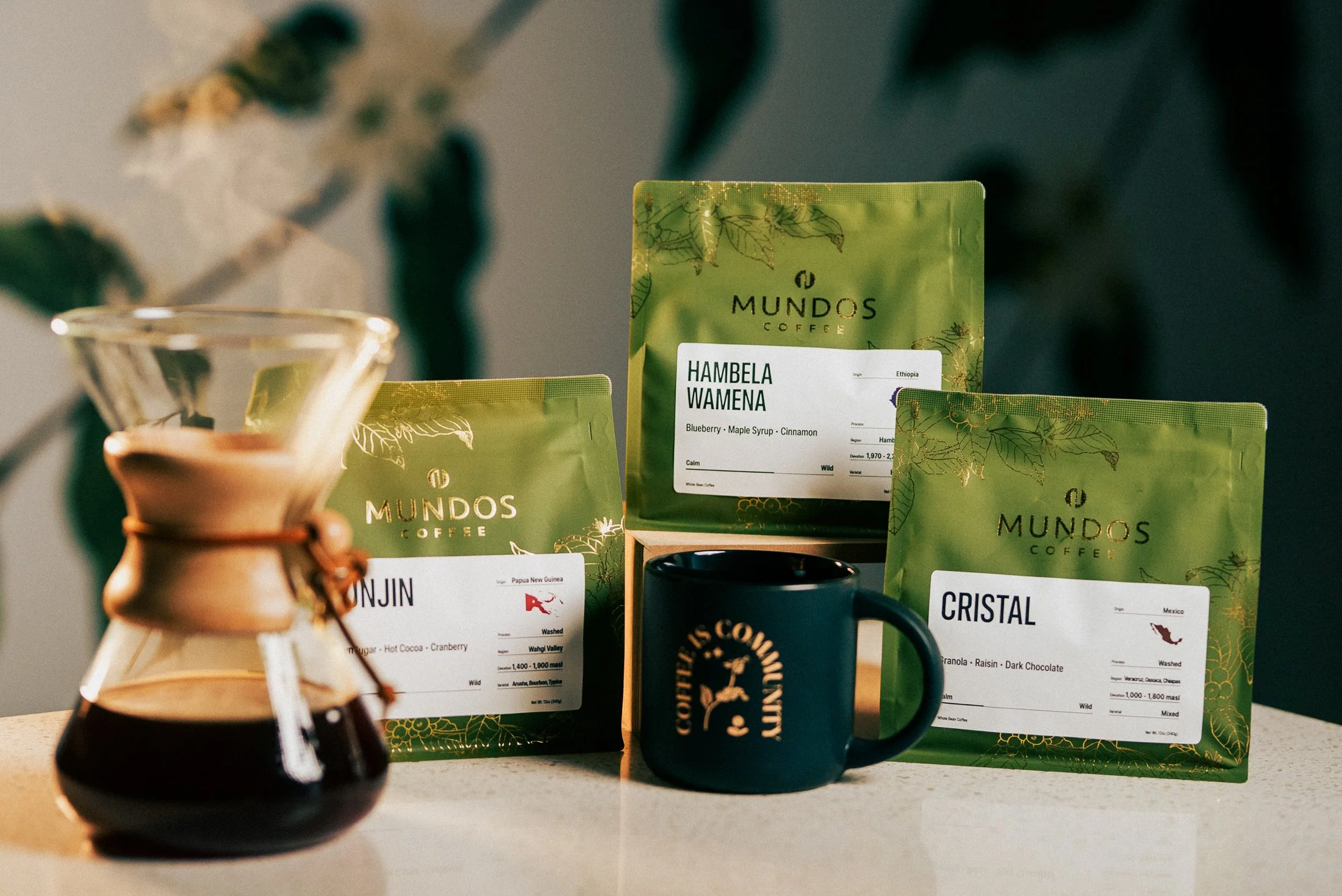

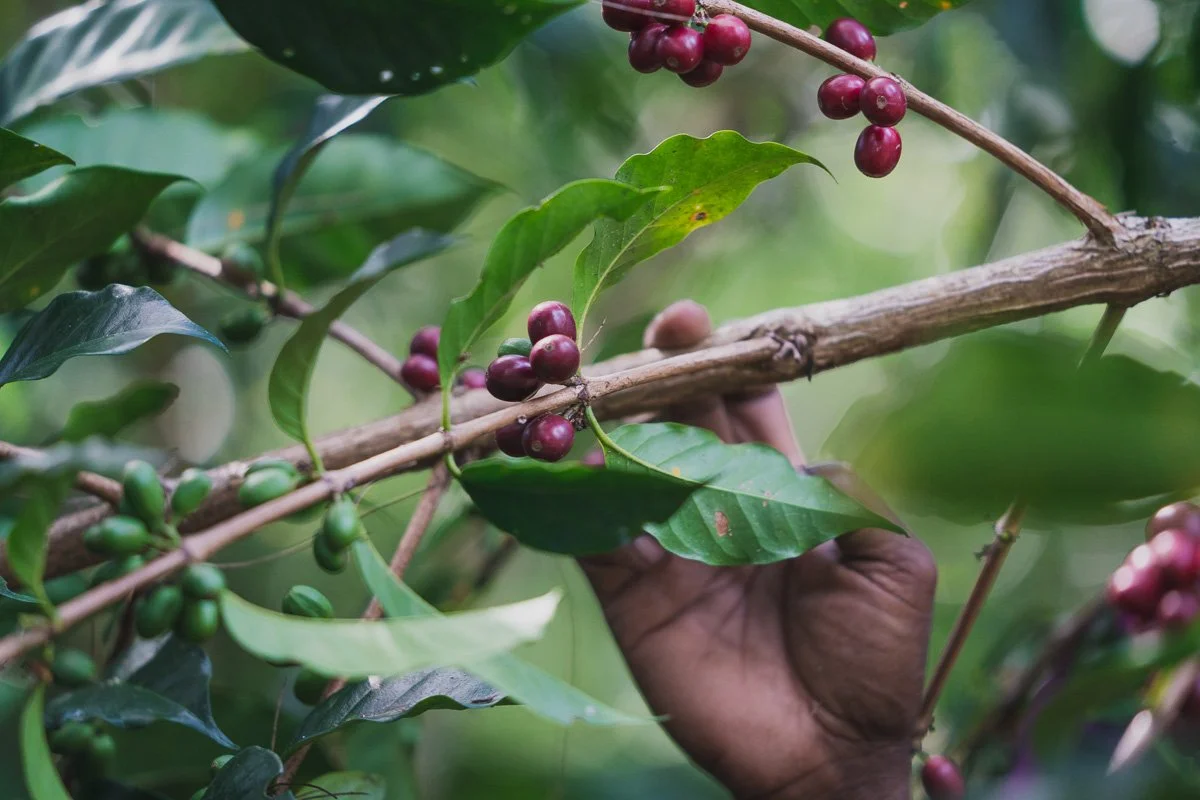
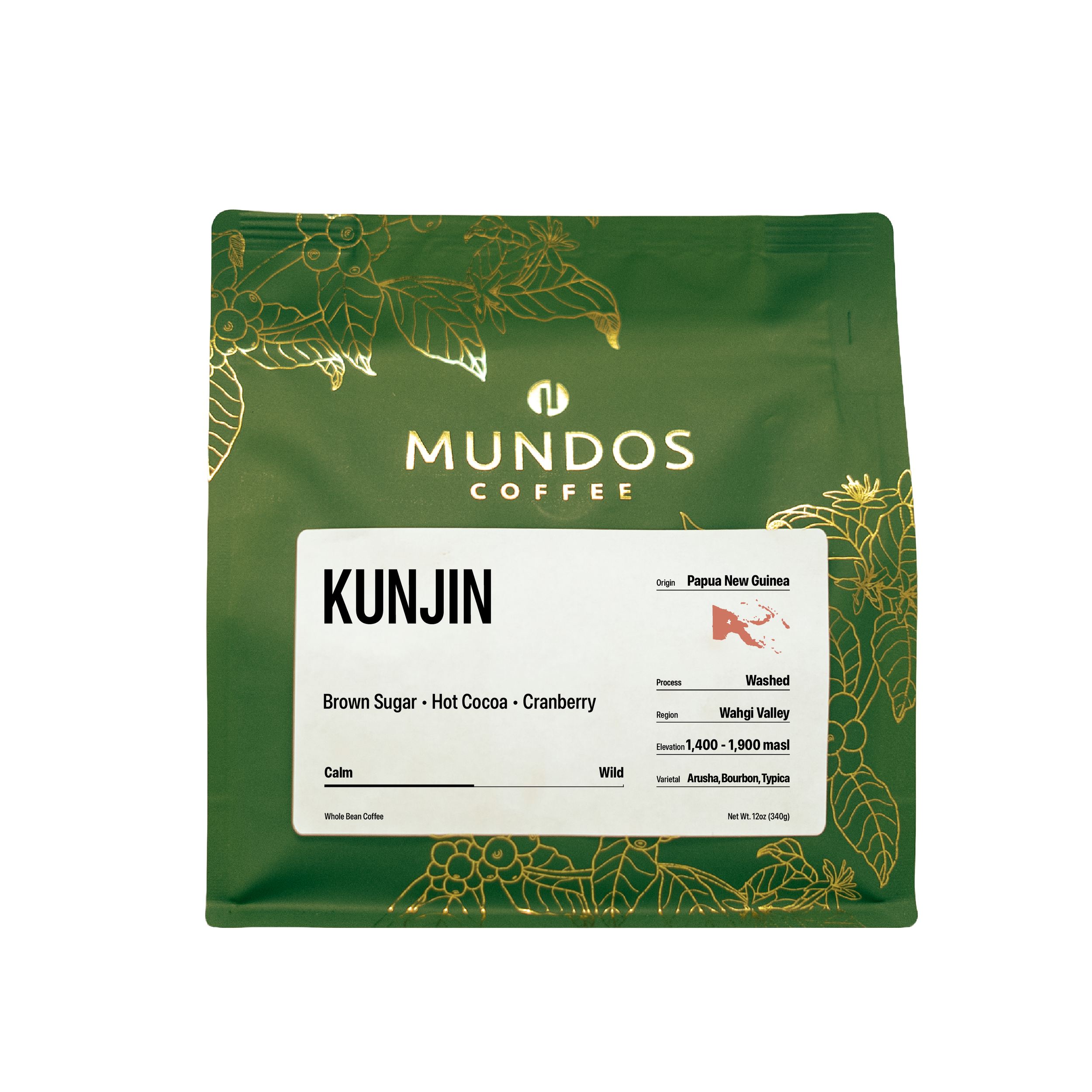
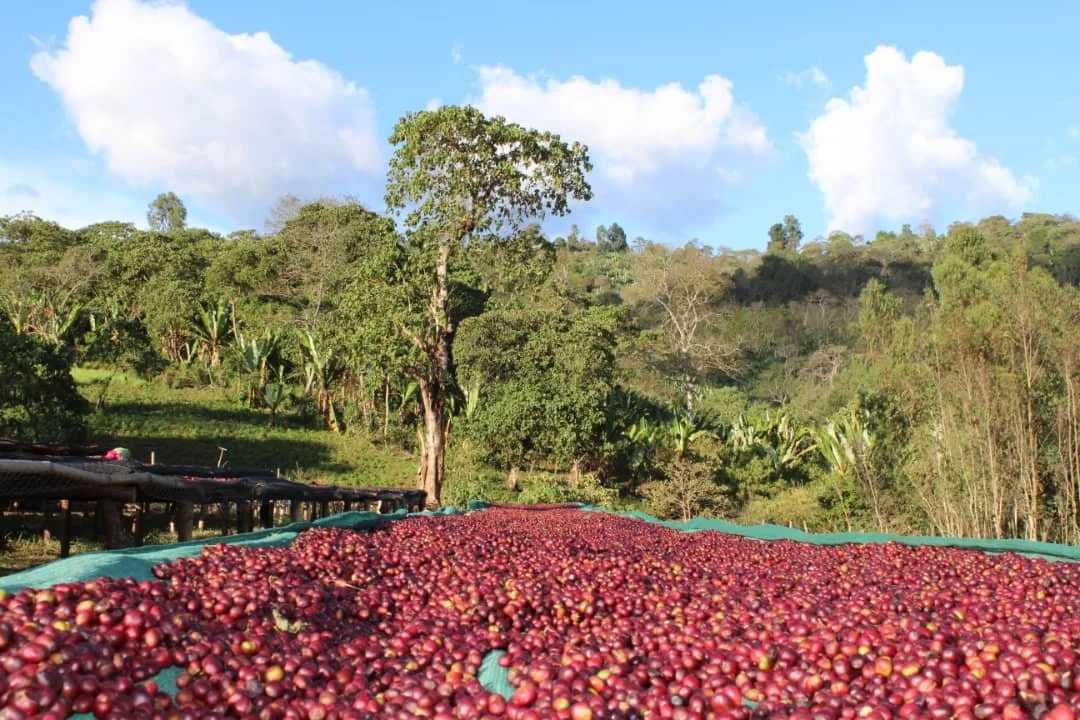
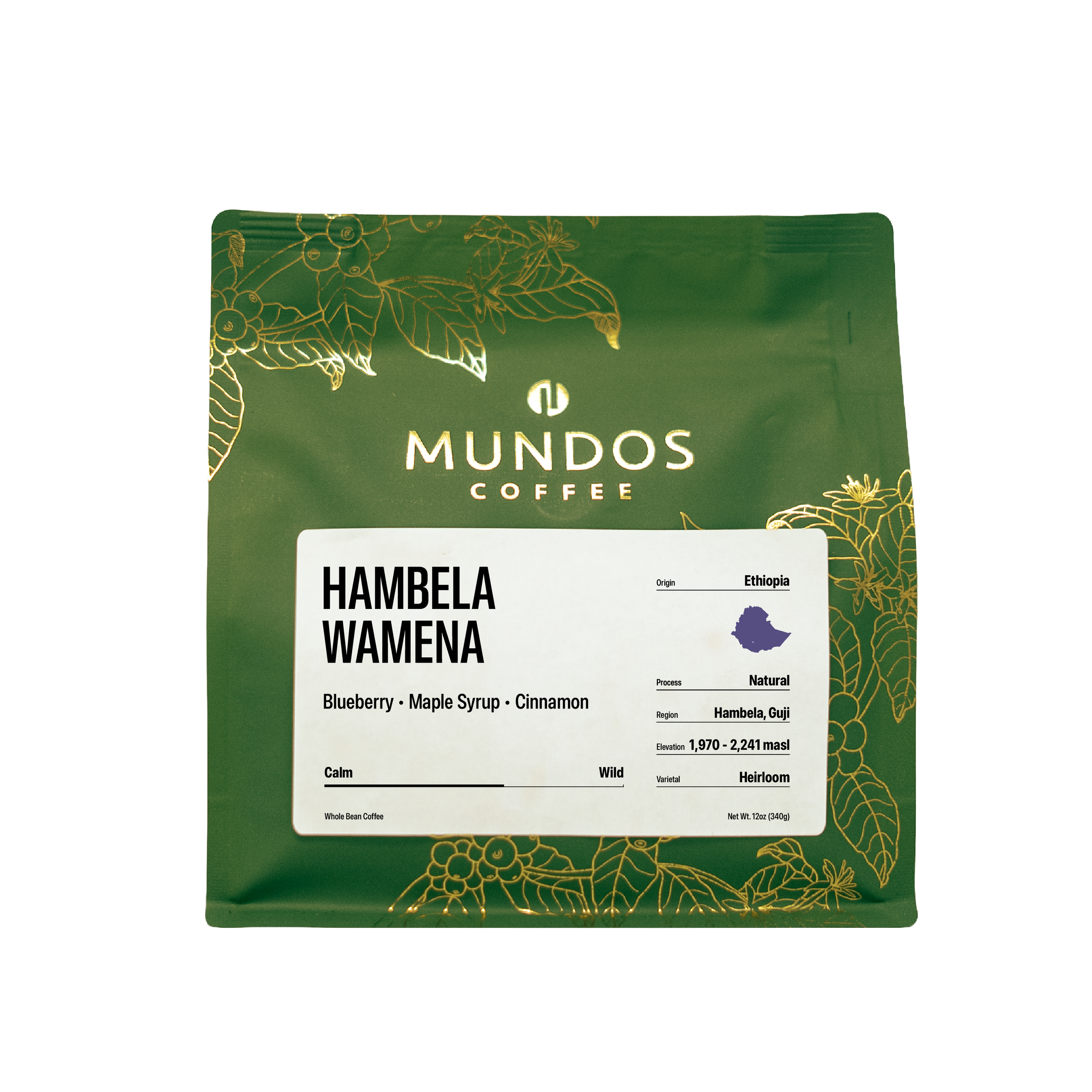
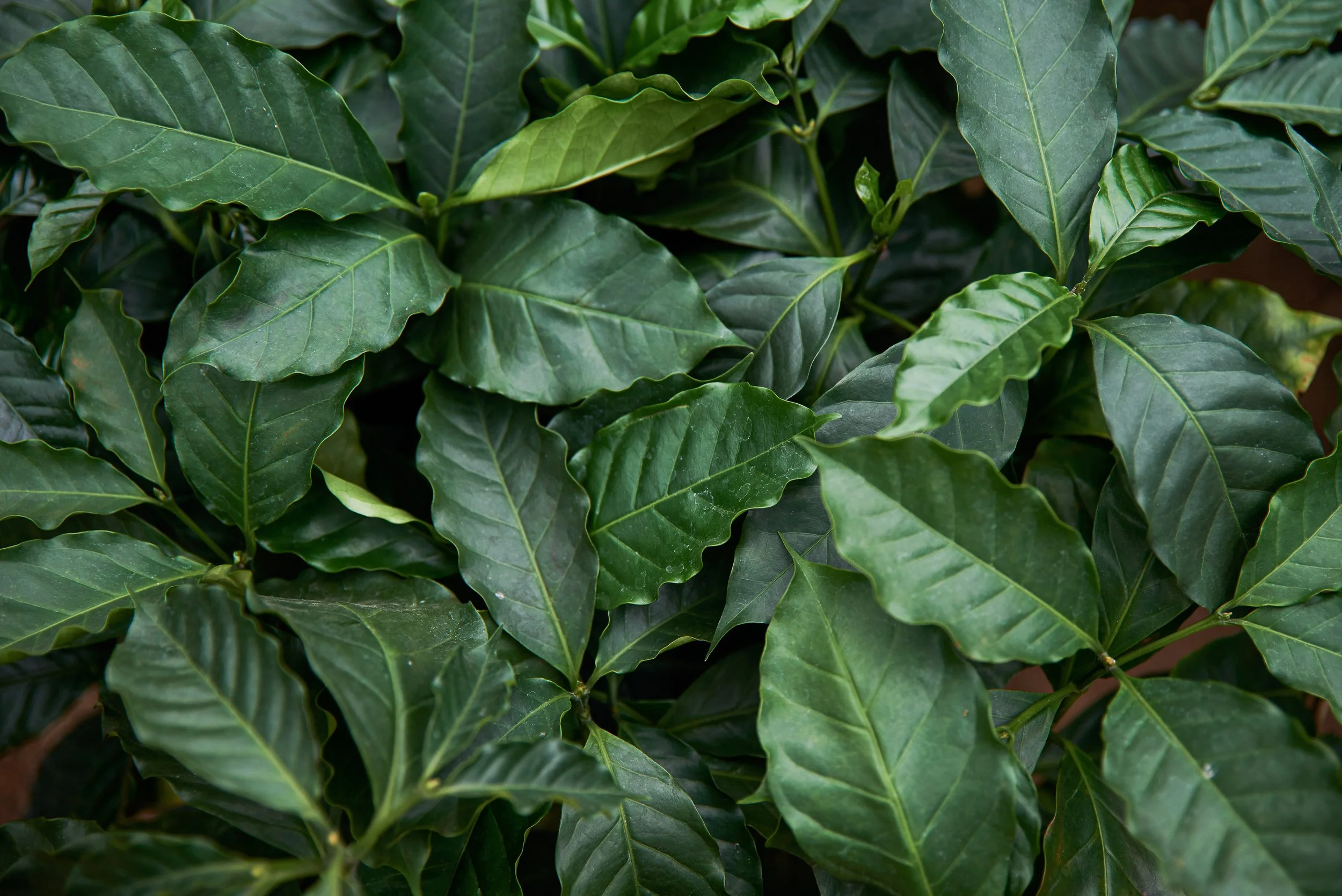
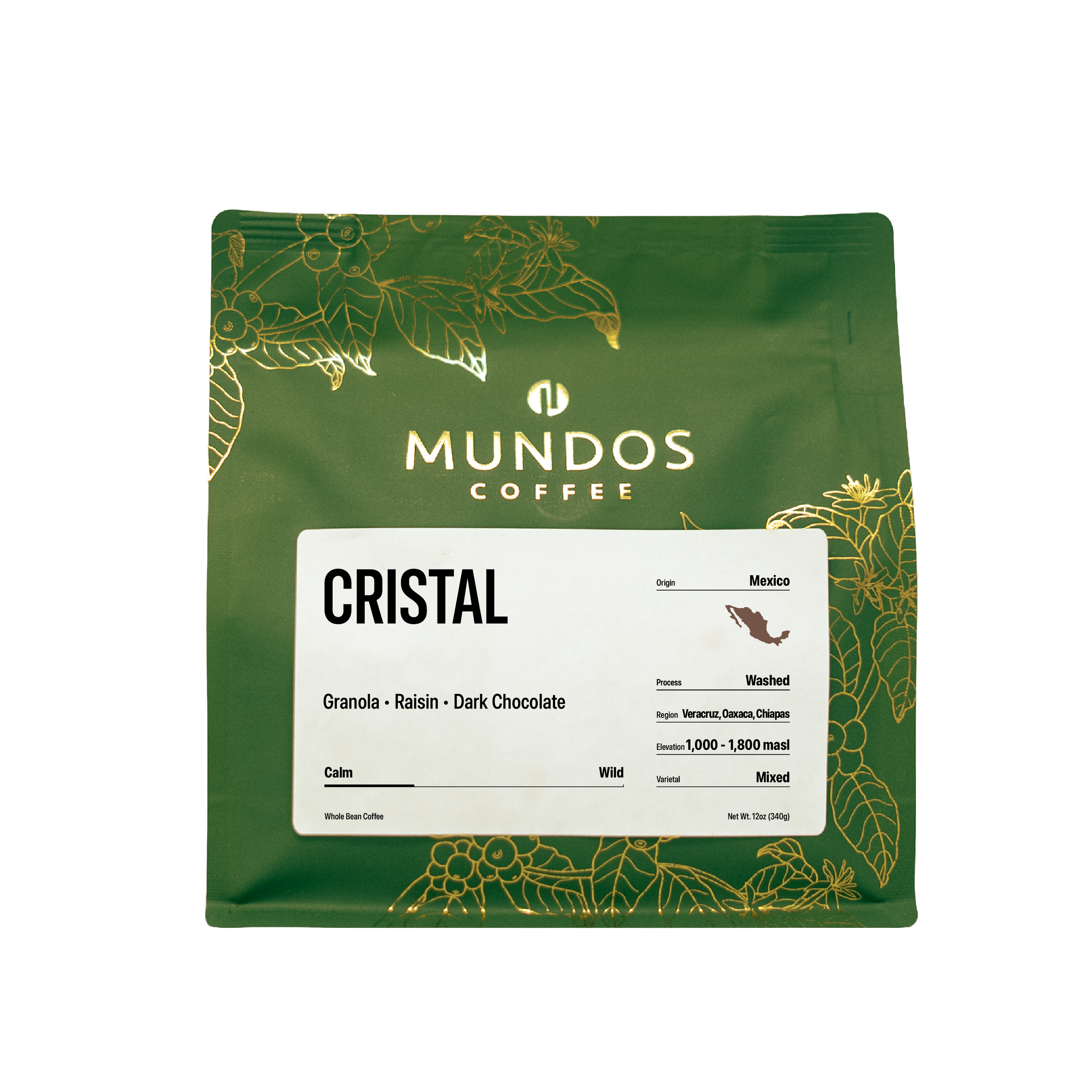
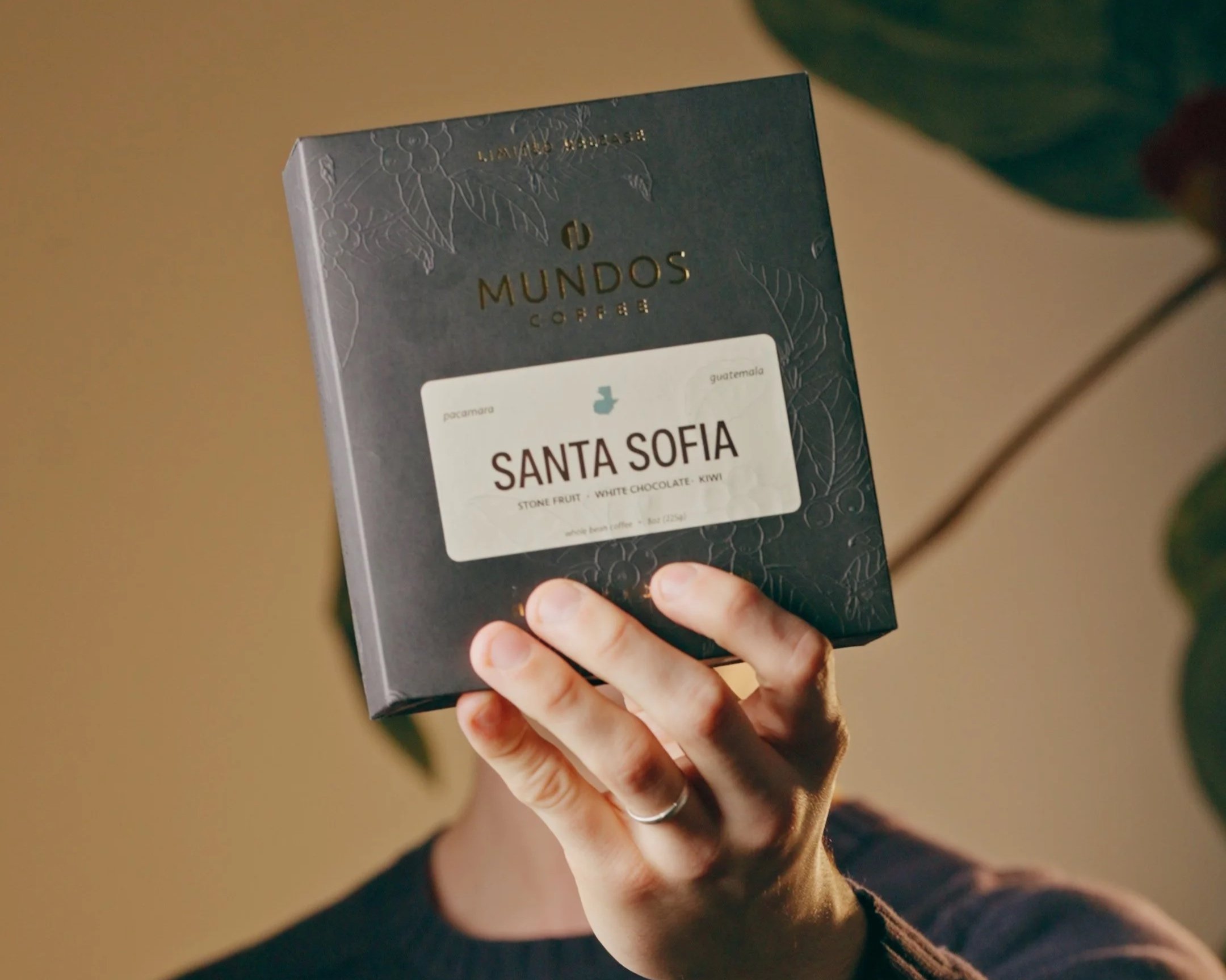


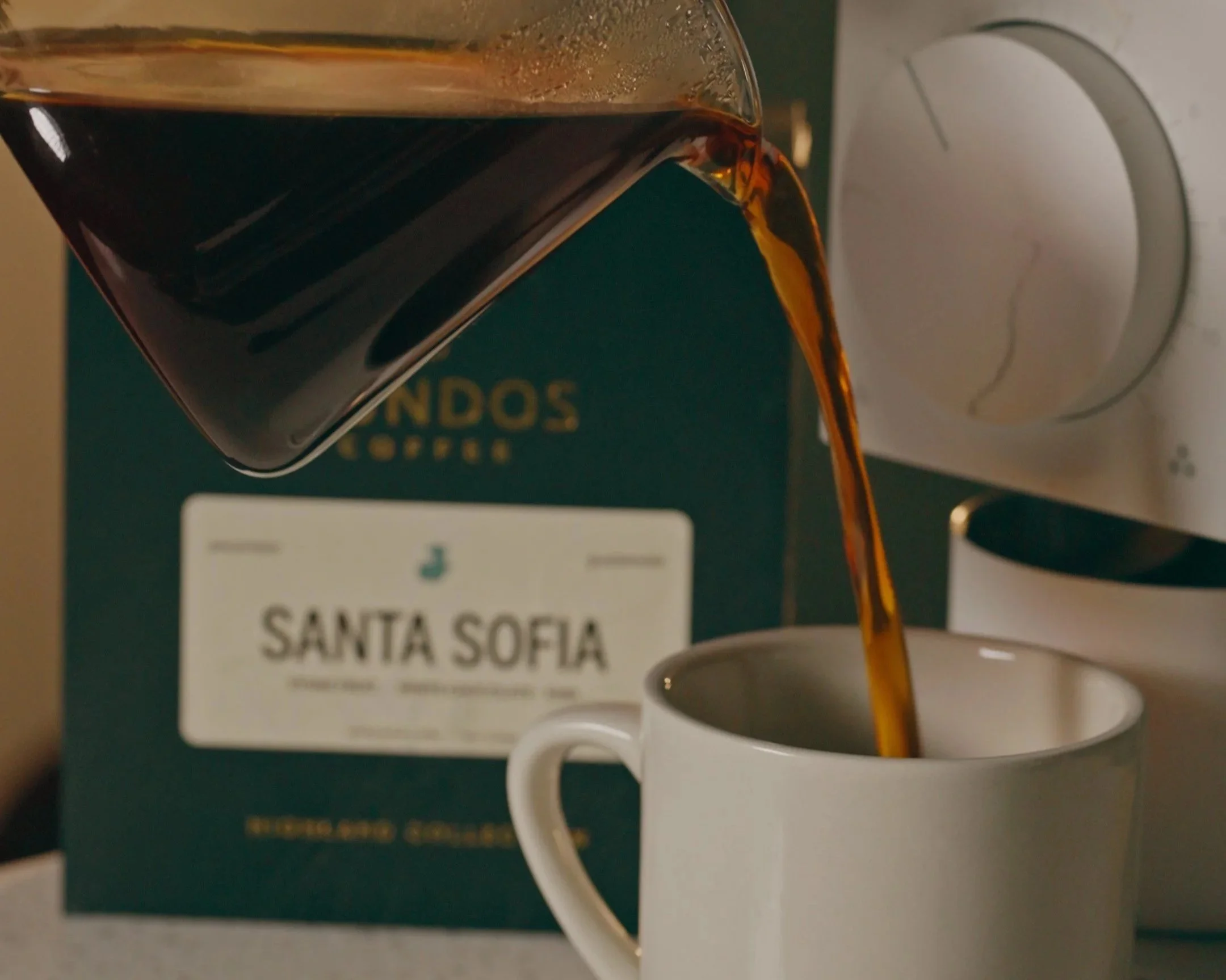
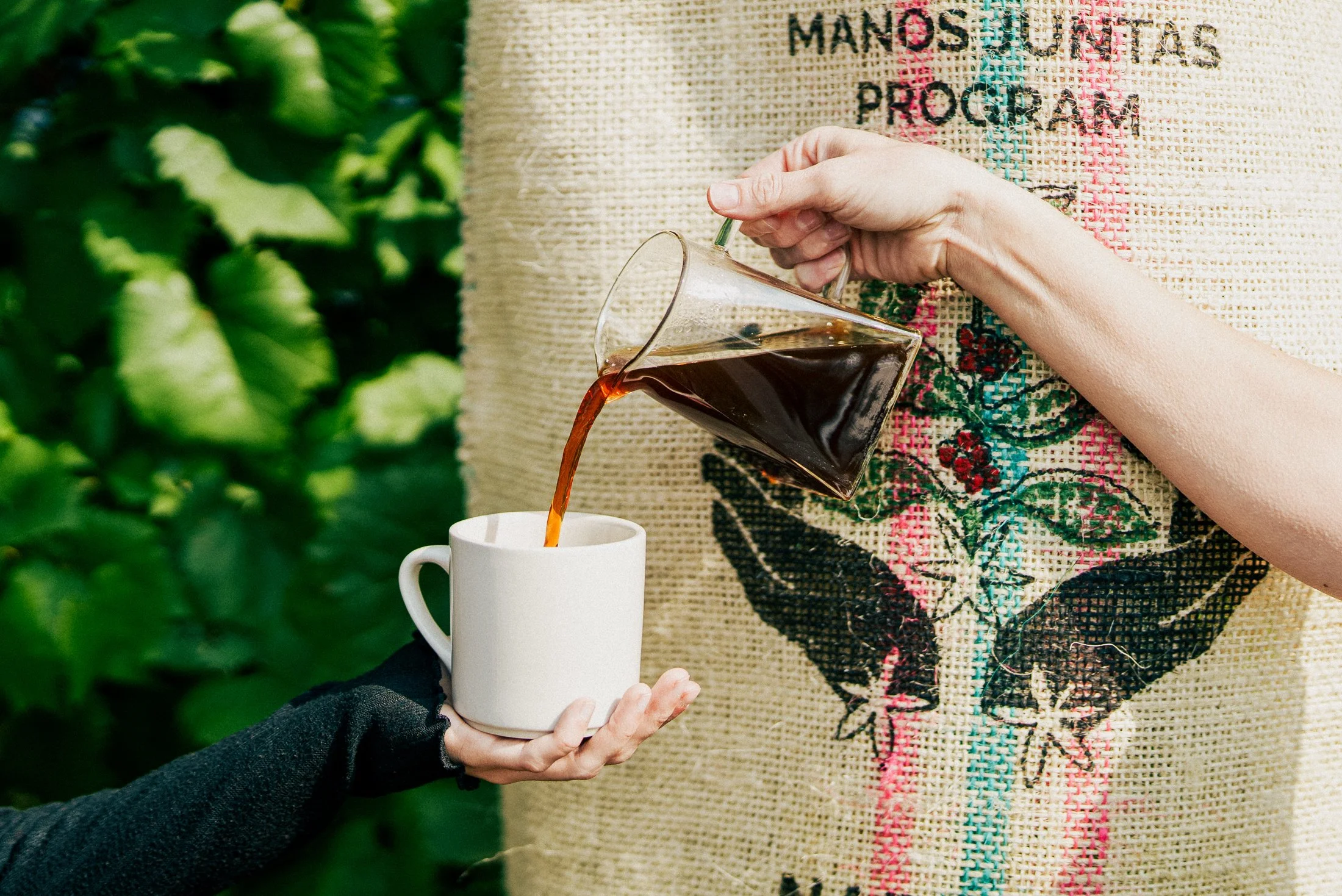






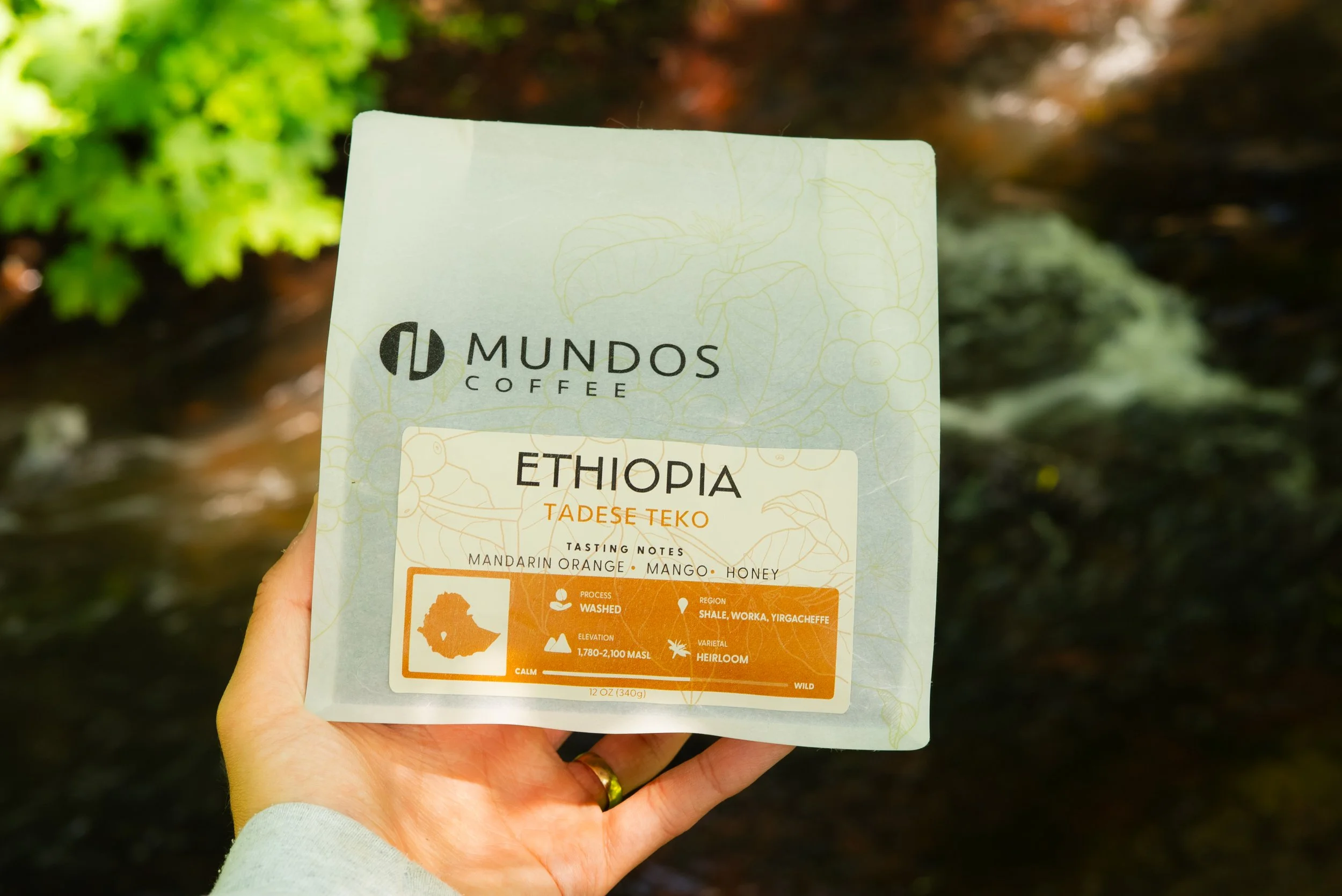




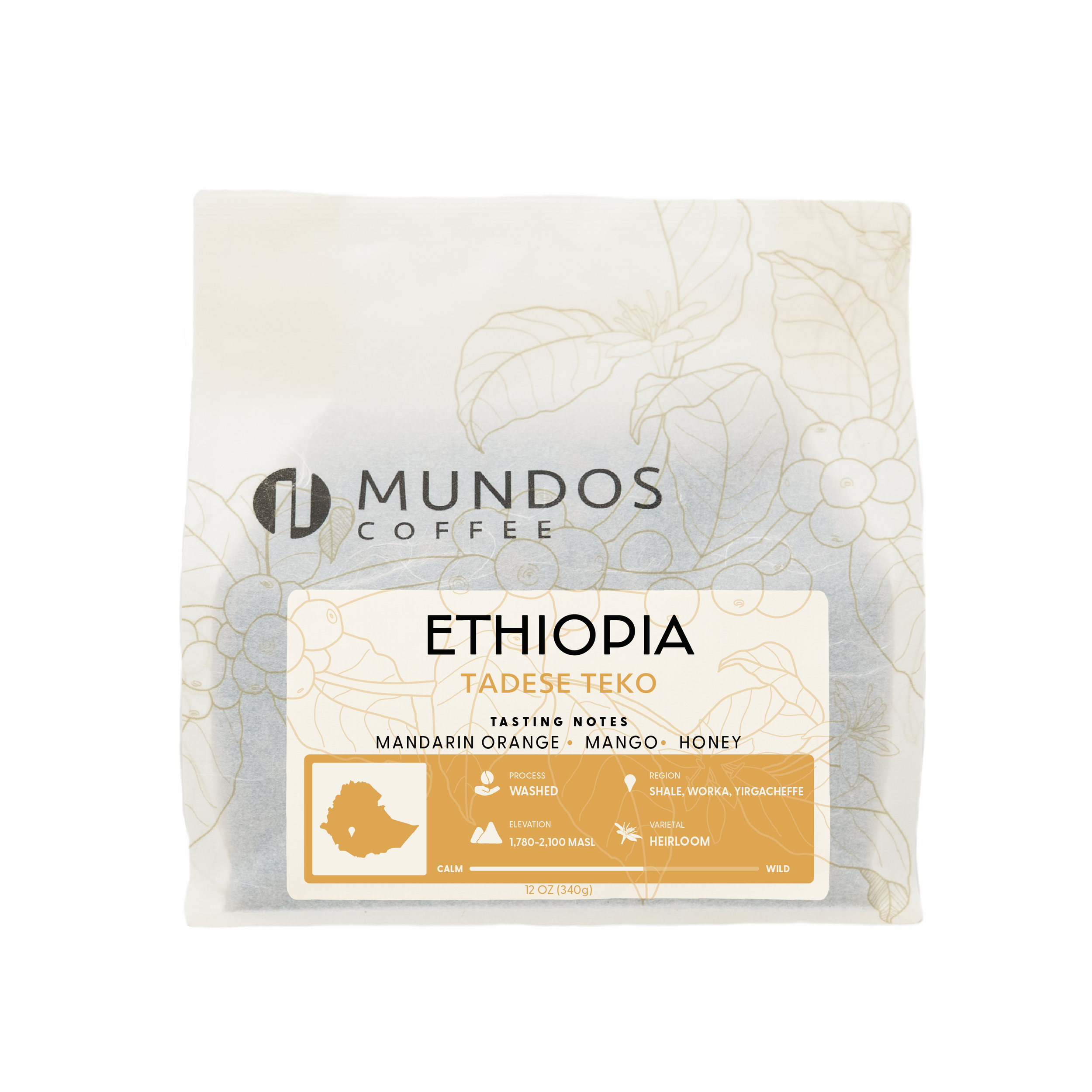
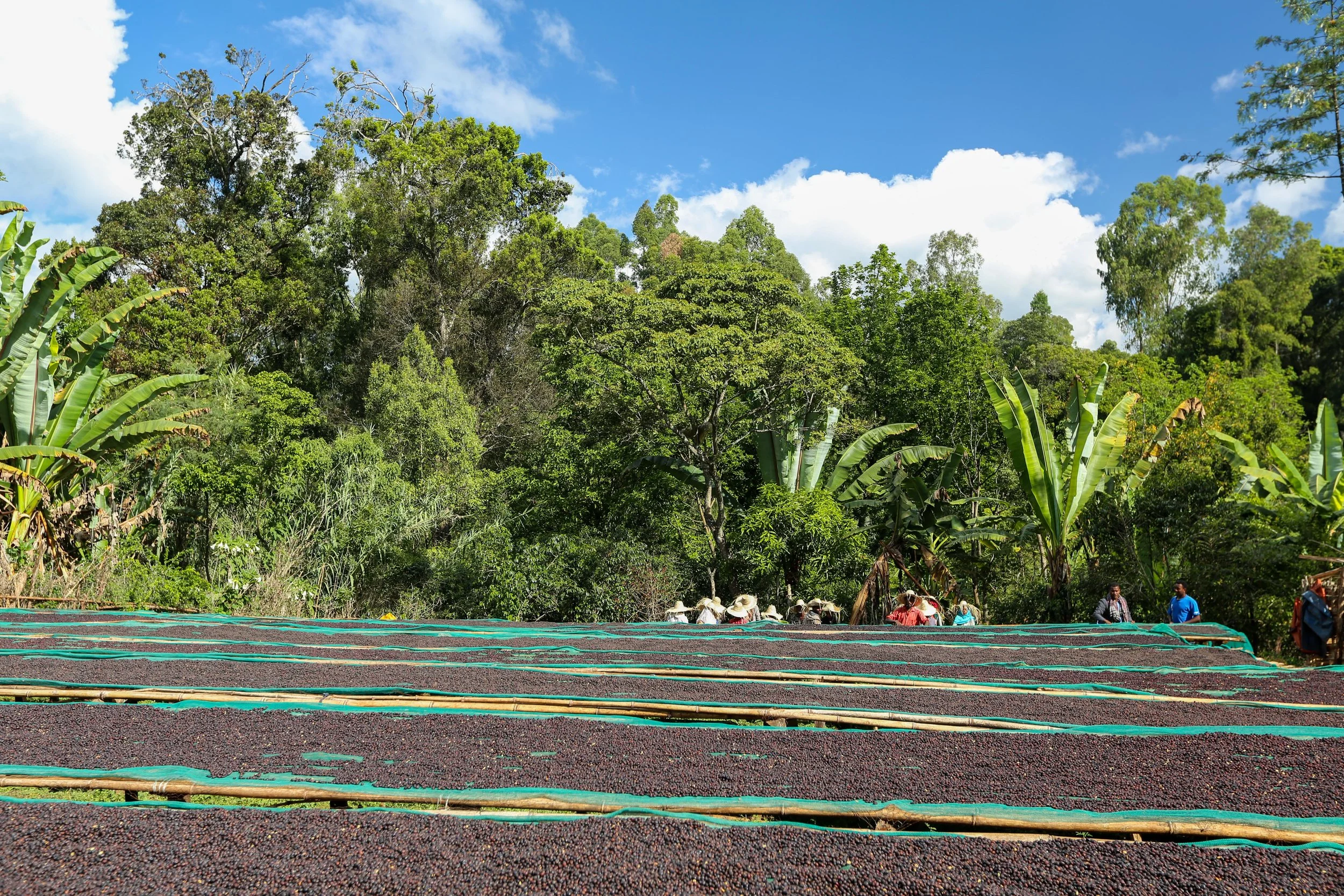

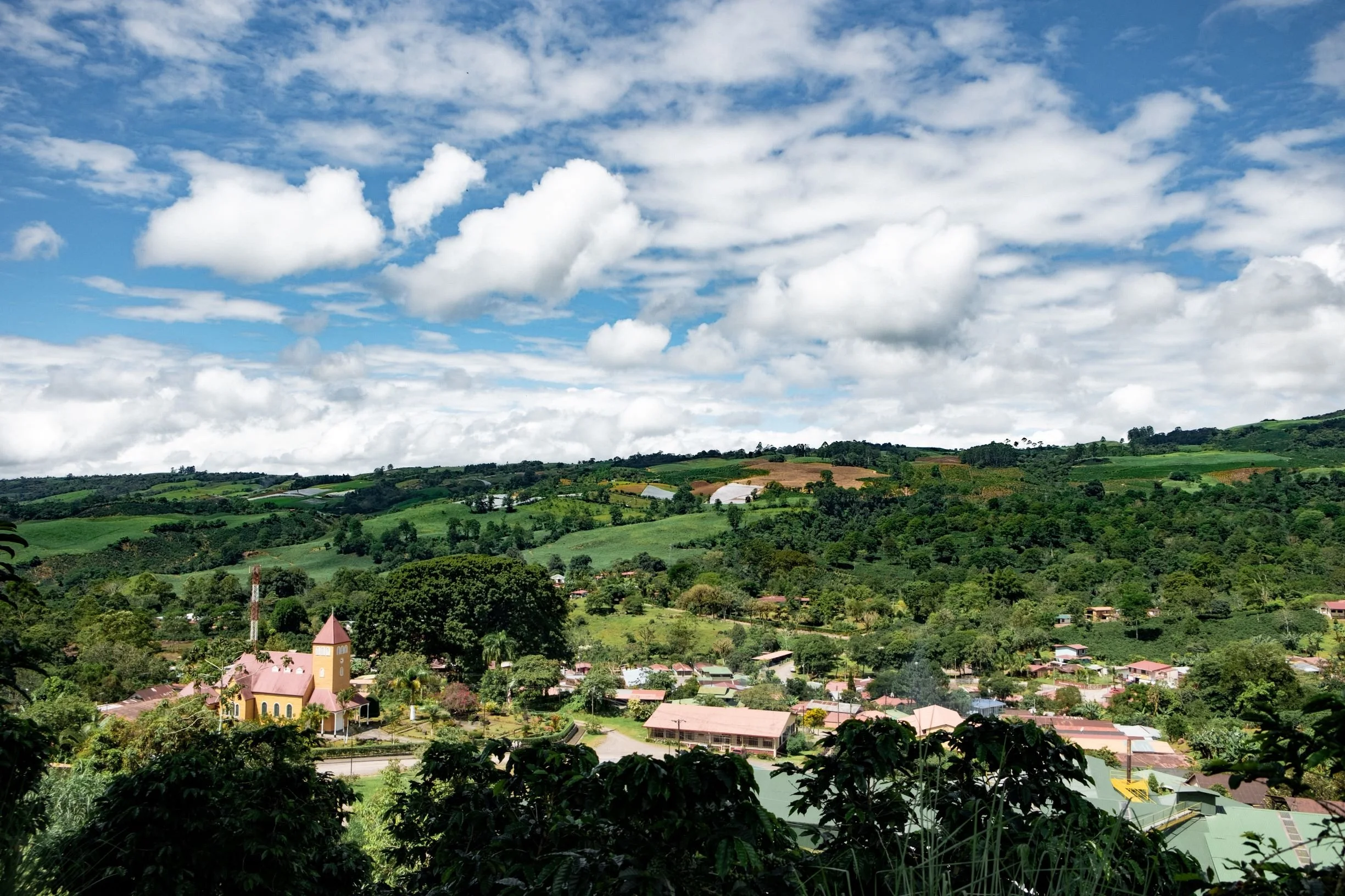


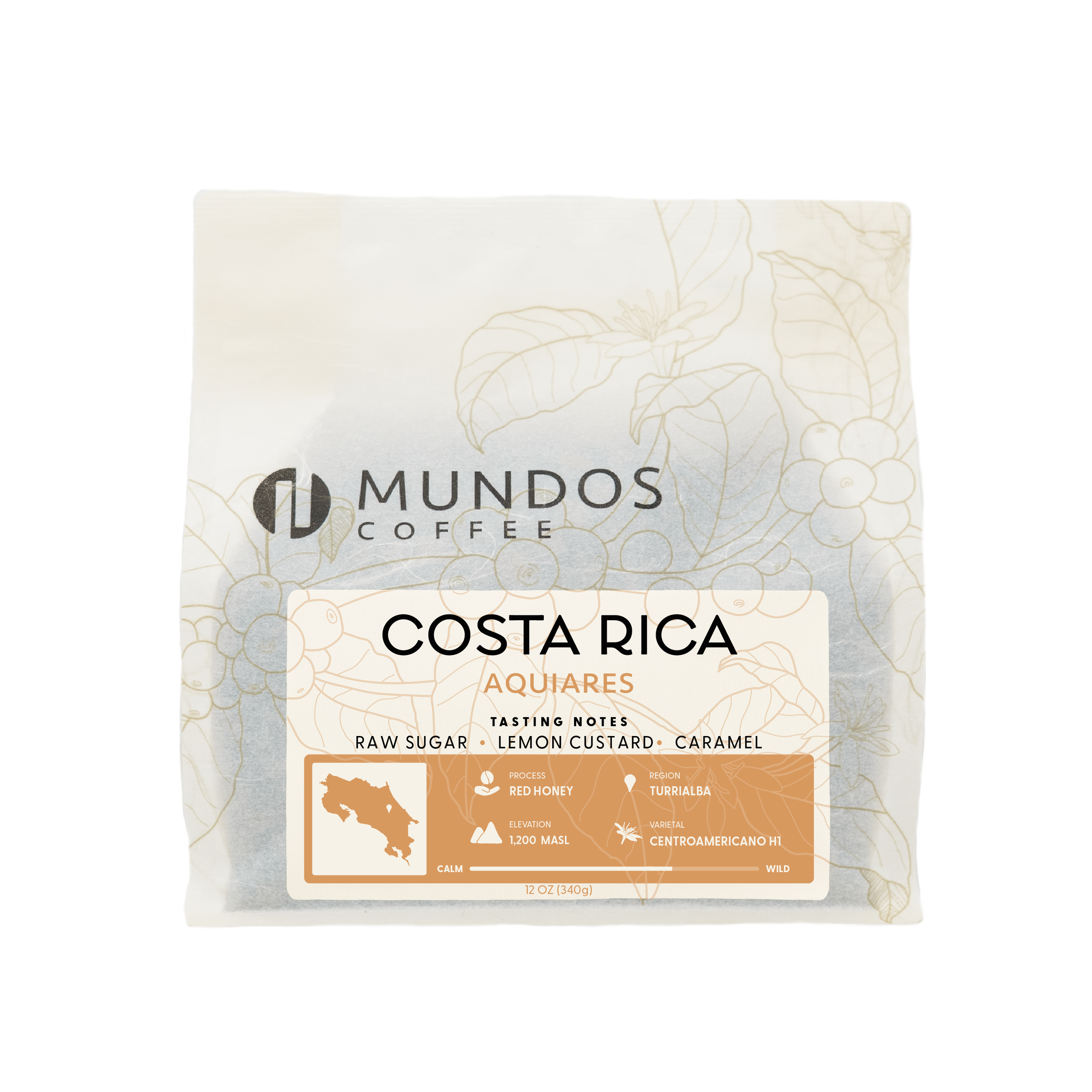



























New coffee releases from Papua New Guinea, Ethiopia and Mexico